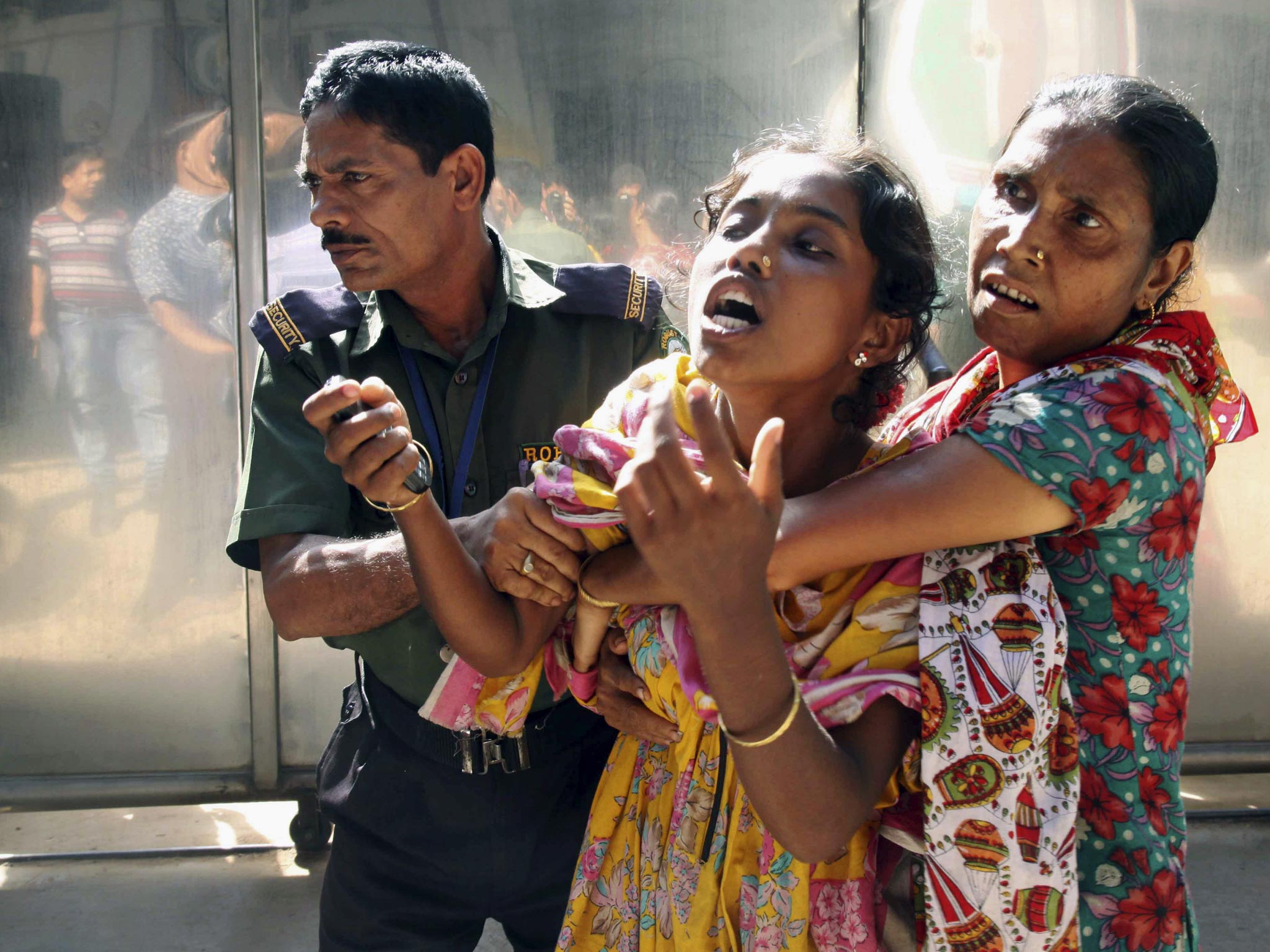Your support helps us to tell the story
From reproductive rights to climate change to Big Tech, The Independent is on the ground when the story is developing. Whether it's investigating the financials of Elon Musk's pro-Trump PAC or producing our latest documentary, 'The A Word', which shines a light on the American women fighting for reproductive rights, we know how important it is to parse out the facts from the messaging.
At such a critical moment in US history, we need reporters on the ground. Your donation allows us to keep sending journalists to speak to both sides of the story.
The Independent is trusted by Americans across the entire political spectrum. And unlike many other quality news outlets, we choose not to lock Americans out of our reporting and analysis with paywalls. We believe quality journalism should be available to everyone, paid for by those who can afford it.
Your support makes all the difference.A fire killed 10 people at a garment factory in Bangladesh about six months after a factory building collapse that killed 1,100 people exposed the harsh and often unsafe conditions in an industry that is the world's third-largest.
Authorities and global clothing companies have pledged to improve safety standards in Bangladesh's garment industry after the Rana Plaza collapse and numerous other fatal accidents.
The cause of the fire at the Aswad garment factory in Gazipur outside Dhaka was not immediately known, but the government was investigating.
The fatalities included the general manager, Rashiduzzaman Mandal, said fire official Zafar Ahmed. He said the fire was doused early Wednesday after firefighters labored 10 hours to bring it under control.
Factory director Emdad Hossain said 170 workers were inside the factory when the fire started and most were able to escape. Hossain said he suffered slight injuries himself.
Farhaduzzaman, another fire official, said the fire spread to two buildings that housed garment factories belonging to the Palmal Group of Industries.
Another garment factory fire last November killed 112 workers in a building authorities said did not have enough exits.
Bangladesh earns $20 billion a year from garment exports, mainly to the United States and Europe. The sector employs about 4 million workers, mostly women.
An engineering survey shown to The Associated Press after the Rana Plaza collapse showed many Bangladesh garment factories added floors that the building foundations couldn't support and were located in converted residential buildings not designed to withstand use of heavy equipment.

Join our commenting forum
Join thought-provoking conversations, follow other Independent readers and see their replies
Comments